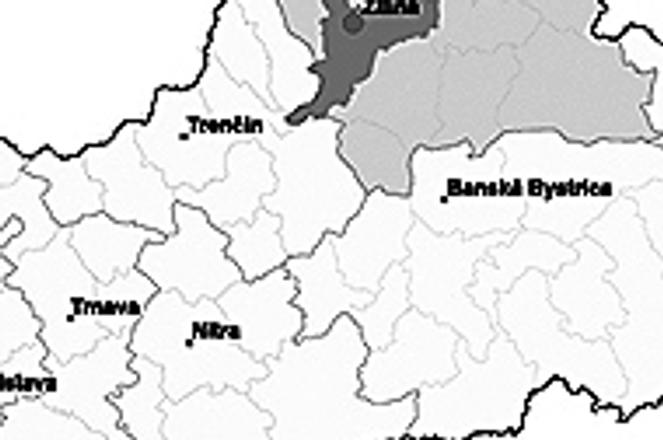FOR THE last year, the Žilina Library has been helping mothers on maternity leave, seniors, disabled people and the long-term unemployed learn computer literacy skills through its free Communication Without Barriers programme. But their computer hardware had fallen into such bad shape, it was no longer meeting the programme's needs.
The library applied for one of the grants the City of Žilina offers for local projects that improve residents' quality of life. They asked for Sk94,800 (€2,860) but only got Sk15,000 (€450).
It is a "limited amount of money", according to Jana Eliášová, the library's project manager - but one that will help the library buy a new computer for their programme.
"Thanks to our courses, the unemployed are more motivated and their chances of finding a decent job are getting better," she told The Slovak Spectator.
"We are grateful for even this small amount of money and we are keen on financing the rest of it ourselves."
The grants programme had been discontinued, but after last year's municipal elections, the decision was made to re-introduce the programme.
This year, the city will distribute Sk3 million (around €90,600) in grants to state institutions, local government bodies, church organisations, businesses, NGOs and private citizens. The city pays for up to 75 percent of the project costs and the receiving groups fund the rest.
The grants were introduced to pour more money into culture, sports, education, social programmes and health care, said Martin Barčík, the Žilina city hall spokesman.
"Many of the top projects were focused on breaking the barriers between the disabled and the general public," he told The Slovak Spectator.
Other projects helped give children and youth meaningful ways to spend their free time - such as sports, education and developing their creativity, he added.
The grant programme also increases transparency in the distribution of municipal finances, Barčík said. At the same time it tries to increase citizens' sense of philanthropy and encourage them to donate their time, money, goods, services and knowledge without expecting anything in return.
The city announced the revival of the grants programme in April and the winning projects were selected this summer.
This year the grants are supporting projects that involve culture, education, sports, social and health care, and the environment. Once the projects are evaluated, other areas might get on the list as well, Barčík said.
The only condition for applicants is that they have a permanent address or corporate location in Žilina and either be active in the city or serve the citizens of Žilina in some way.
Top Projects
Žilina city hall spokesman Martin Barčík listed the projects that received the most points from the grants committee this year:
*The 21st Century Foundation's project within the Žilina Festival of
Literature
*The private primary school for autistic children and their Learning
Traffic Safety Through Play project
*The Náruč charity's project to professionalise the Náruč Children's
Crisis Centre
*The Stanica-CAMP workshops for children
*The Krajina Harmónie foundation and their International Festival
of Creativity and Fantasy
*The Chránené Dielne organisation and their project, Žilina Without
Barriers
*The LÚČ Foundation with the project Dni Nádeje (Days of Hope)
Žilina
Size:
6,808 sq. kilometres
Population:
694,763
Density:
102 / sq. km
Unemployment rate:
11.1%
Average monthly wage:
Sk16,437 (€497)
Average wage, Slovakia:
Sk18,761 (€567)
Share of Slovak GDP creation:
10.5% *
FDI:
Sk35.088 billion (€1.061 billion)
Share of total Slovak FDI:
7.4%
Upcoming Regional Focuses
Vol. 13 No. 26
Košice
Vol. 13 No. 27
Prešov
Vol. 13 No. 28
Banská Bystrica
Vol. 13 No. 29
Žilina
Vol. 13 No. 30
Trenčín
Vol. 13 No. 31
Trnava
Vol. 13 No. 32
Nitra
Vol. 13 No. 33
Bratislava
Sources: Statistics Bureau of the Slovak Republic, portal.statistics.sk, and the National Bank of Slovakia, www.nbs.sk. All figures current as of December 31, 2006, except for * Dec. 31, 2004. All euro conversions are based on current exchange rates.

